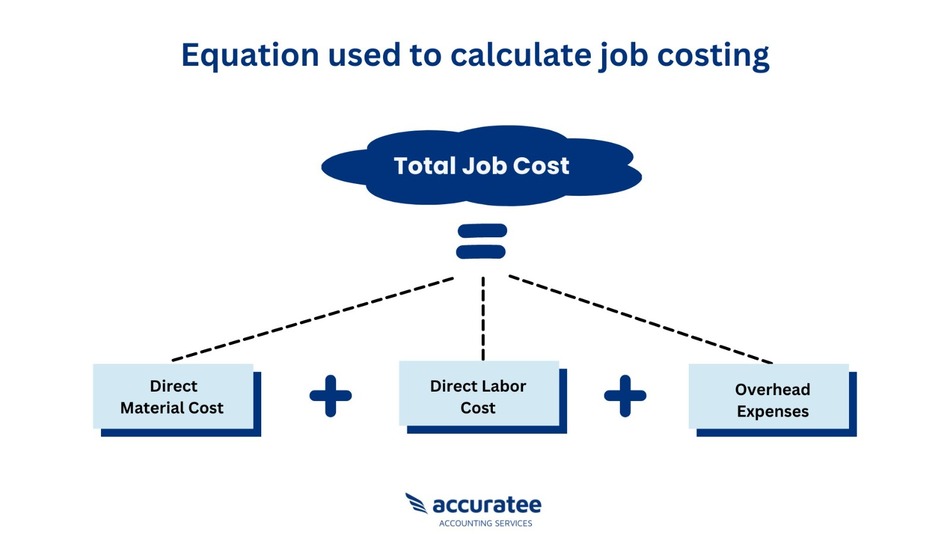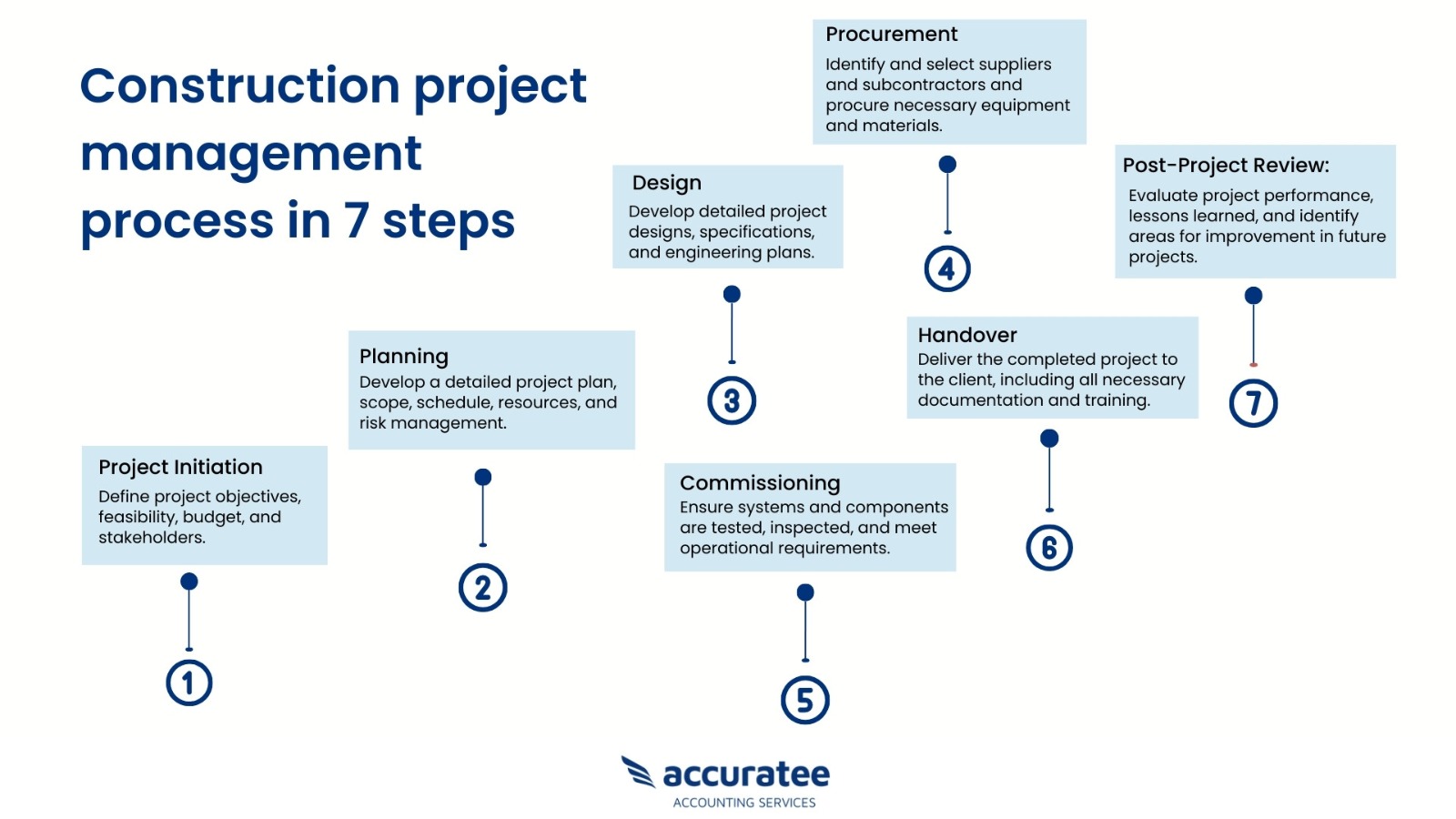Why is construction job costing crucial for effective project management?
Introduction:
Construction projects are complex and involve numerous components and stages that must be carefully planned and executed to ensure their success.
Effective project management is essential for the success of any construction business, and one of the key components for managing projects successfully is job costing.
Understanding the cost of each component and stage of a project is crucial in determining its overall financial health, progress, and viability. Without proper job costing, a project can quickly derail, and unforeseen expenses can result in missed deadlines, budget overruns, and unhappy stakeholders.
Whether you're just starting in the construction industry or looking to improve your current processes, understanding job costing is a vital step towards achieving successful project outcomes. In this blog, we will discuss why construction job costing is so important and how you can use it to ensure your projects run smoothly and efficiently.
Key takeaways
Construction job costing is an accounting method that allows you to track all the direct and indirect costs associated with a project.
Construction project management involves managing and coordinating a project from inception to completion.
There are three important costs that should be considered while calculating total job costs. These include labor cost, material cost, and other overhead expenses.
Job costing helps project managers manage projects more efficiently by finding ways to optimize resources better and minimize expenses.
What is construction job costing?
Job costing in construction is an accounting method that lets you track all of a job's direct and indirect costs. By providing a detailed breakdown of a project, the job costing enables you to monitor expenses in real time and helps you to calculate its future value.
While many companies rely on the general ledger to record project expenditures, it can take a lot of work to get an accurate picture of a specific project this way. General ledgers are designed to give you a broad view of your business's financial health, so it can be challenging to determine individual construction job costs.
That's where job costing comes in! It gives you up-to-date evidence of all the receipts, income, and expenditures for any specific project, so you can quickly identify any unexpected expenses that might affect your profit. And If you encounter any unexpected costs that go beyond your initial plan, job costing helps you to identify and address the issue without delay.
Additionally, job costing helps you anticipate potential problems before they arise, so you can make informed decisions about pricing, scheduling, and resource allocation, ensuring the successful completion of your construction projects. With job costing software, you can easily enter and track project expenses, including materials, labor, and overhead costs, in real time, making it easier to monitor the progress and profitability of your construction projects.
What are the important features of job costing in construction?
When it comes to performing job costing for construction companies, three main features are carefully considered by construction accounting professionals. These are material costs, labor costs, and overhead expenses.
Material costs refer to the materials and supplies required for the construction projects. These materials could include lumber and bricks to paint and plumbing fixtures.
On the other hand, labor costs include the wages and benefits paid to employees or contractors involved in the project.
Finally, overhead costs encompass all other expenses related to the project that cannot be attributed directly to labor or materials. This could include rent, utilities, insurance, and depreciation of equipment.
By carefully analyzing and estimating these three cost factors, construction company professionals can effectively manage and control project expenses. Construction Job cost software can automate the tracking and analysis of material, labor, and overhead costs for construction companies.

What does construction project management means, and why is it important?
Construction project management is the process of managing and coordinating all aspects of a project from start to finish, including planning, design, budgeting, scheduling, and execution. It requires effective communication, cost management, problem-solving skills, and managing people, resources, and time.
Construction project management is important because it ensures that a project is completed according to the desired quality standards, within the allocated budget and within the given timeline. It also helps to minimize risks, avoid delays and cost overruns, and ensure safety on the construction site.
Effective project management is essential for successful construction projects, as it helps to ensure that all stakeholders are satisfied with the outcome. This includes the client, who wants a quality project delivered on time and within budget, and contractors, suppliers, and other stakeholders interested in the project's success.
Construction project management process
The construction project management process refers to the systematic and structured approach that is used to plan, design, execute, and control a construction project from start to finish. The process typically involves the following phases:

How is job costing crucial for managing construction projects effectively?
As you now know about job costing and the importance of managing projects effectively in the construction industry, you may be wondering how job costing fits into the equation. To help you understand the role of job costing in managing construction projects, we have outlined some points that show how job costing helps project managers to identify areas where resources can be optimized and expenses minimized, allowing for more efficient management of projects. .
-
Cost savings:
Job costing can help to identify cost savings opportunities. By closely analyzing labour, material and Overhead costs, businesses can find areas where they can reduce expenses or optimize the use of resources. This can help businesses save money in the long run, allowing them to reinvest those funds into other areas of the business or upgrade equipment to become more efficient.
Additionally, job costing can help businesses identify potential tax savings opportunities by accurately tracking expenses and allocating costs between jobs as soon as possible. This ensures that tax deductions are taken promptly for maximum tax savings.
-
Time tracking:
Job costing also helps with time tracking, allowing you to accurately track how much time has been allocated for each job. This will help ensure that all jobs are completed within the agreed-upon timeframe. It also allows you to easily identify tasks that may take more time than expected so corrective action can be taken promptly. Time tracking is an important aspect of job costing as it helps ensure jobs are completed efficiently and accurately.
Additionally, it helps ensure proper billing and cost estimation, which are important for any business. By tracking the time spent on each job, businesses can make sure they are making the most effective use of their resources and that their clients are paying fairly for services rendered. Time tracking also allows for better forecasting and planning of future projects. This can help a construction company stay competitive and grow its business.
-
Real time visibility:
Job costing also gives businesses real-time visibility into the current status of their projects. This helps them quickly identify problems or potential delays, so they can address them immediately and prevent any further issues. This also allows businesses to quickly adjust their plans if needed and ensure they complete jobs on schedule. Real-time visibility into projects also allows businesses to allocate resources more efficiently and improve their overall efficiency.
Additionally, real-time visibility into job costing allows for better communication within the company and with clients, allowing for more efficient communication between everyone involved in the project. This leads to better customer satisfaction as customers will always be informed of progress.
-
Benchmarking:
Job costing provides construction businesses with a benchmarking system that can be used to measure their performance against other companies in the industry. This can be done by comparing costs and profitability, as well as tracking and analyzing trends in the industry. With job costing, businesses can establish a baseline of performance that they can use to compare their performance with others in the same industry.
Furthermore, it allows for improved decision-making as businesses can identify their strengths and weaknesses compared to other companies. This helps businesses to understand their competitive landscape better and make informed decisions.
-
Compliance:
Job costing is a helpful tool that project owners can use to ensure compliance with all laws, regulations, and contractual obligations.
By tracking actual costs associated with various tasks, businesses can identify areas where they may be non-compliant and adjust as needed. This helps them remain compliant while ensuring the project meets its goals and objectives within the allocated budget.
Moreover, effective compliance management reduces the risk of legal and financial penalties and promotes a culture of ethical behaviour and accountability within the organization.
-
Project bidding:
Project bidding is an essential part of any construction projects. With job costing, businesses can accurately assess a project's expenses and make more informed decisions when bidding on multiple projects. Properly estimating the costs associated with a given project helps ensure that businesses take on only a few financial risks and offer competitive bids.
Moreover, project bidding helps businesses determine the best vendors and subcontractors for a particular project. Through job costing, businesses can accurately compare bids from multiple vendors and make more informed decisions on who they will select to do the work and what materials and tools are needed. This information can be used to decide on the most reliable and affordable approach for completing a project.
Turn Your Bookkeeping into a Breeze!
Conclusion
Job costing is an indispensable tool for managing projects effectively in the construction industry. By diligently monitoring and controlling costs and expenses, construction companies can deliver high-quality projects that meet or exceed their client's expectations. Using job costing software can enhance accuracy and efficiency, making the job costing process more streamlined and effective.
Remember, even the most well-planned construction projects can run into trouble without proper financial management. So, prioritize job costing, set up your cost management system, and run your project confidently and profitably.
If you want to carry out job costing for your construction business but need help knowing where to start or are looking for some support with construction bookkeeping, our team of experts can provide you with the guidance you need. We specialize in helping construction businesses manage their finances, and we're here to assist you in any way we can. Don't hesitate to contact us; we'll be happy to provide you with personalized support.









